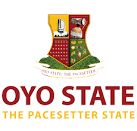The power to amend the Nigerian Constitution is vested in the National Assembly, which consists of the Senate and the House of Representatives, as specified in Section 9 of the 1999 Constitution of the Federal Republic of Nigeria (as amended). Additionally, the 36 State Houses of Assembly also have the authority to participate in the amendment process.
Hence, the presentation of bills by the 60 lawmakers to the House for constitutional amendment falls within their constitutional mandate.
The process for amending the Nigerian Constitution is outlined in Section 9(2) of the 1999 Constitution. It stipulates that any proposed amendment must be approved by at least a two-thirds (2/3) majority of all members of each State House of Assembly, as well as both chambers of the National Assembly. It must also receive the assent of the President. As a result, the proposed bills for constitutional amendment will need to undergo the required legislative process, including obtaining the approval of a two-thirds majority in all legislative houses, before they can become law.
Regarding the transition from a presidential to a parliamentary system, it is important to note that such a shift would bring about significant changes in the structure and operation of the government. Currently, Nigeria operates under a presidential system, which entails separate and independent executive and legislative branches, with the President serving as the head of the executive branch. Conversely, a parliamentary system combines the executive and legislative functions, with the head of government being the leader of the majority party or coalition in the legislature.
To effect a transition from a presidential to a parliamentary system, several provisions of the Nigerian Constitution would need to be amended to accommodate the requirements of the new system. Potential constitutional implications arising from this transition include:
1. Redefining the distribution of powers and roles between the executive and legislative branches. This would involve determining the powers and responsibilities of the Prime Minister, the Cabinet, and the Parliament.
2. Potentially altering the method of electing the head of government, as the Prime Minister would typically be chosen from the majority party or coalition in the Parliament. This would impact the electoral process, including the role of political parties and the voting system.
3. Reconsidering the concept of separation of powers, which is a foundational principle of the presidential system. The checks and balances between the executive and legislative branches would need to be reevaluated.
4. Ensuring the continued independence and effectiveness of the judiciary, as the transition may have implications for the judiciary’s autonomy and the balance of power among the three branches of government.
Given the substantial changes that would result from transitioning to a parliamentary system, it is crucial to ensure broad public participation and consultation throughout the amendment process. Public hearings, stakeholder engagements, and expert opinions should be sought to gather diverse perspectives and ensure transparency and inclusivity.
In conclusion, the proposed constitutional amendment to transition from a presidential to a parliamentary system of government, presented by the 60 lawmakers in the Nigerian House of Representatives, falls within their constitutional authority. However, the proposed amendment bills must undergo the necessary legislative process, including obtaining the approval of a two-thirds majority in both the House of Representatives and the Senate, as well as the assent of the President, before they can become law.
Transitioning to a parliamentary system would have significant constitutional implications, including the redistribution of powers, changes in the election process, and potential impacts on the separation of powers and judicial independence. Therefore, it is important to ensure public participation and consultation to gather diverse perspectives and ensure the legitimacy and acceptance of any constitutional changes.
Ensuring broad public participation and consultation during the amendment process of the Nigerian Constitution is crucial for transparency, inclusiveness, and legitimacy. Here are some ways the Nigerian government can promote public engagement:
1. Public Hearings: Organize public hearings at various stages of the amendment process to allow citizens, civil society organizations, and other stakeholders to provide input, express their opinions, and make suggestions. These hearings should be conducted in different locations across the country to facilitate accessibility and inclusivity.
2. Town Hall Meetings: Host town hall meetings where government officials and lawmakers can interact directly with the public, listen to their concerns, answer questions, and gather feedback on the proposed constitutional amendments. These meetings should be widely publicized and open to all interested individuals.
3. Online Platforms: Establish dedicated online platforms or portals where citizens can access information about the proposed amendments, provide feedback, and submit their opinions. These platforms can include discussion forums, surveys, and comment sections to facilitate public input.
4. Public Awareness Campaigns: Launch comprehensive public awareness campaigns to educate citizens about the proposed amendments, their potential implications, and the importance of their participation. This can involve media campaigns, including television, radio, newspapers, and social media, to reach a wide audience.
5. Engaging Civil Society Organizations (CSOs): Collaborate with CSOs, advocacy groups, and non-governmental organizations (NGOs) that specialize in constitutional law, governance, and citizen engagement. These organizations can assist in organizing public forums, providing legal expertise, and facilitating public consultations.
6. Expert Consultations: Seek input from legal experts, constitutional scholars, academics, and think tanks with expertise in constitutional law. Their insights can provide valuable perspectives and help ensure that the amendment process is well-informed and comprehensive.
7. Legislative Openness: Promote transparency and openness within the legislative process by providing timely updates, publishing draft amendments and related documents, and making legislative proceedings accessible to the public through live streaming or recordings.
8. Feedback Mechanisms: Establish mechanisms for citizens to submit written feedback, suggestions, and proposals directly to the lawmakers and government officials involved in the amendment process. This can include dedicated email addresses, physical mailboxes, or online submission forms.
9. Civic Education: Conduct civic education programs to enhance citizens’ understanding of the constitution, their rights, and the amendment process. This can involve partnerships with educational institutions, community organizations, and media outlets to disseminate educational materials and organize workshops or seminars.
10. Collaboration with Media: Engage with media organizations to ensure accurate and comprehensive coverage of the amendment process. This can include providing press briefings, interviews, and press releases to keep the public informed.
By implementing these measures, the Nigerian government can facilitate broad public participation, gather diverse perspectives, and create an inclusive and transparent environment for the constitutional amendment process.
 Hottestgistnaija.com
Hottestgistnaija.com





